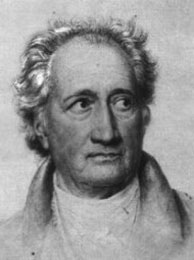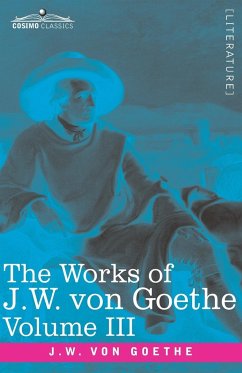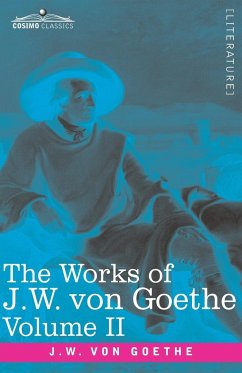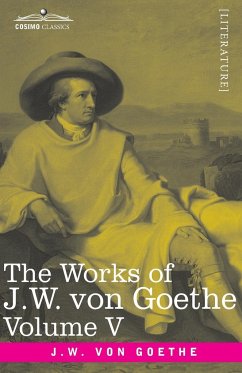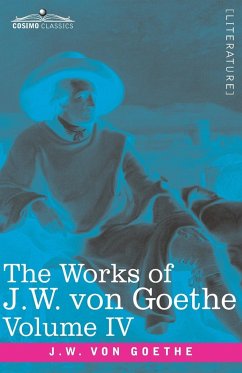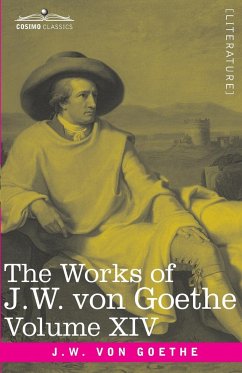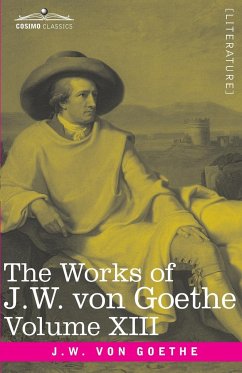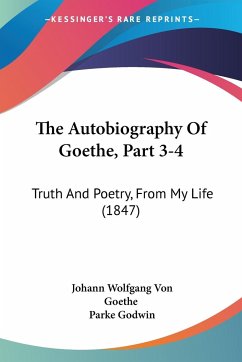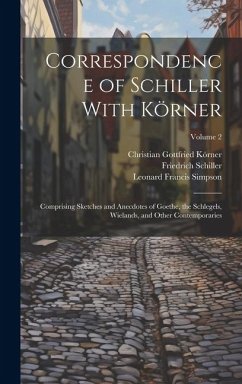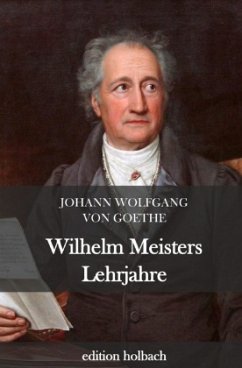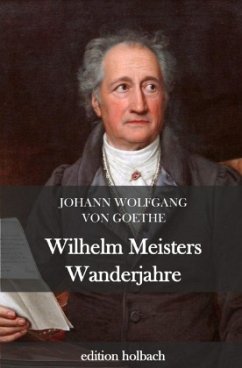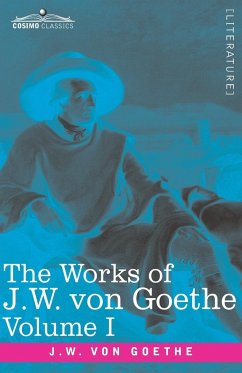
The Works of J.W. von Goethe, Vol. I (in 14 volumes)
with His Life by George Henry Lewes: Wilhelm Meister's Apprenticeship Vol. I
Versandkostenfrei!
Versandfertig in 1-2 Wochen
26,99 €
inkl. MwSt.

PAYBACK Punkte
13 °P sammeln!
"One ought, every day at least, to hear a little song, read a good poem, see a fine picture, and, if it were possible, to speak a few reasonable words." -Johann Wolfgang von Goethe, in Wilhelm Meister's Apprenticeship The Works of J.W. von Goethe, Vol. I-Wilhelm Meister's Apprenticeship Vol. I, by Johann Wolfgang von Goethe, is part of a 14-volume set originally published in 1901-1902. Wilhelm Meister's Apprenticeship, the second novel by Goethe (1795) inspired by Shakespeare's dramas, is the story about Wilhelm Meister, a member of a wealthy German family, who tried to escape the empty life o...
"One ought, every day at least, to hear a little song, read a good poem, see a fine picture, and, if it were possible, to speak a few reasonable words." -Johann Wolfgang von Goethe, in Wilhelm Meister's Apprenticeship The Works of J.W. von Goethe, Vol. I-Wilhelm Meister's Apprenticeship Vol. I, by Johann Wolfgang von Goethe, is part of a 14-volume set originally published in 1901-1902. Wilhelm Meister's Apprenticeship, the second novel by Goethe (1795) inspired by Shakespeare's dramas, is the story about Wilhelm Meister, a member of a wealthy German family, who tried to escape the empty life of a bourgeois businessman by attempting a career as an actor and playwright. This novel has had a great influence on the history of the German novel. Arthur Schopenhauer called it one of the four greatest novels ever written.





